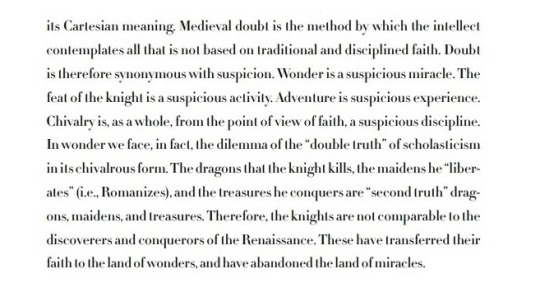#Vilém Flusser
Text
Esquecer é uma função tão importante da memória quanto lembrar
- Vilém Flusser
8 notes
·
View notes
Text

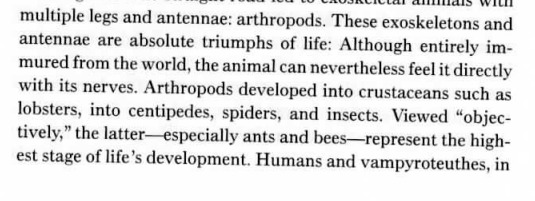

… We are such chauvinistic Metazoa that we deny these life forms their animality.
… Viewed "objectively" the latter—especially ants and bees—represent the highest stage of life's development. Humans and vampyroteuthes, in comparison, have advanced down blind alleys. Among Hymenoptera, life has managed to supersede the individual organism and cultivate a highly cerebralized superorganism (ant hills, beehives). It can be expected that Hymenoptera will one day come to dominate all life on earth.
Vilém Flusser & Louis Bec: Vampyroteuthis Infernalis
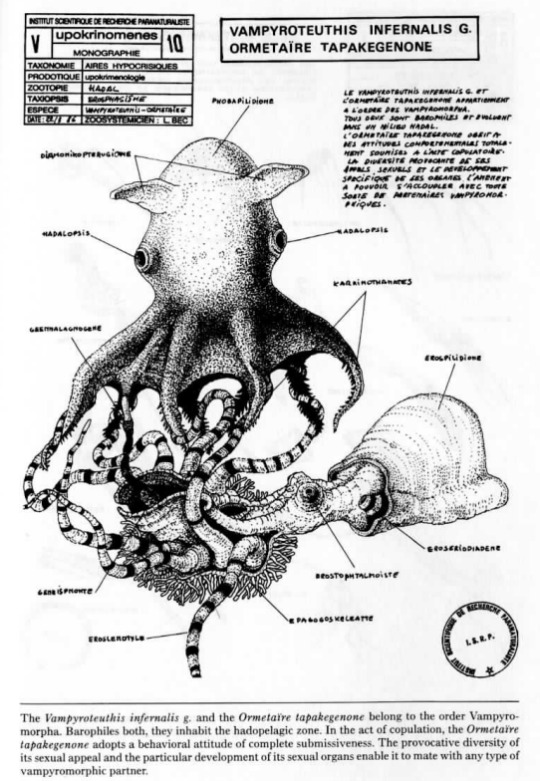
0 notes
Photo
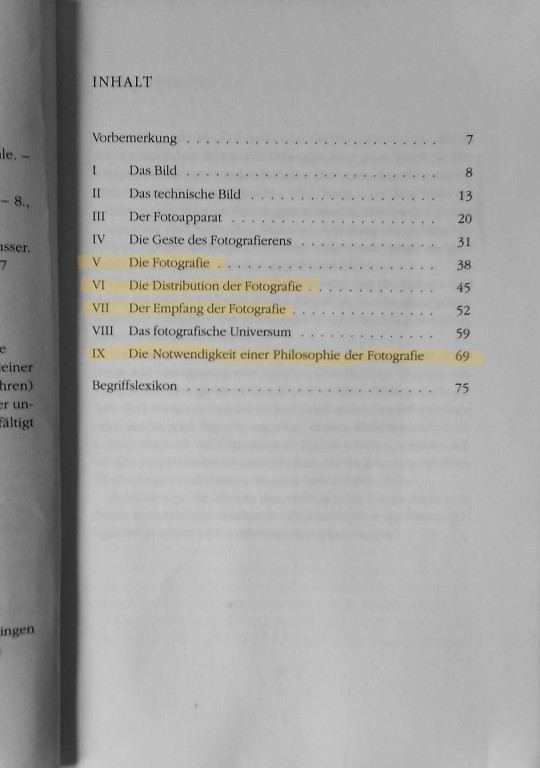

#vilém flusser#für eine philosophie der fotografie#edition flusser#hrsg.#andreas müller-pohle#european photography#göttingen#1983#die distribution der fotografie#der empfang der fotografie#fair trade#books
0 notes
Text
Die Tage auch davor. Im Arbeitsjournal des Mittwoch, den 20. Februar 2024.
[Arbeitswohnung, 9.25 UhrWollny & Kühn, → DuoVon dieser Einspielung kann ich gar nicht mehr lassen(meine Kritik liegt schon bei Faust, doch möcht’ ich nicht “spoilern”)] Daß Faust meine Horcynus-Orca-Rezension → übernommen hat, zumal mit meiner bösen Bemerkung zum Zentralorgan der AfD für die deutsche Linke((Womit selbstverständlich die Junge Welt gemeint ist)). ist durchaus nicht ohne…

View On WordPress
#Adrian v. Ribbentrop#Adrian v. Ribbentrop Kohlenquelle Berlin#Aisthesis Bersarin#Alban Herbst#Alban Herbst Aeolia.Gesang#Alban Herbst Arbeitsjournal#Alban Herbst Faust Kultur#Alban Herbst Vilém Flusser#Alban Nikolai Herbst Maria Callas#Alban Nikolai Herbst woke#Alexej Nawalny Ermordung#Arco Verlag#Auxcapri Dschungel.Anderswelt#Bebra Verlag Prenzlauer Berg#Benjamin Stein#Berlin Mauerpark#Briefe nach Triest Alban Nikolai Herbst#d’Arrigo Horcynus Orca Rezension#Dunckerstraße Arbeitswohnung#Elvira M. Gross Alban Nikolai Herbst#Georg Büchner Buchladen Prenzlauer Berg#Helmholzplatz Prenzlauer Berg#Israel Gaza Ukraine Weltkrieg#Jassir Arafat#Junge Welt Maria Callas#Kurt Drawert Körper Zeit#Maria by Callas Volf#Maria Callas ARTHAUS#Michael Wollny Joachim Kühn Duo#NATO Ukraine Rußland
0 notes
Text
Books Read in 2023
Frankenstein by Mary Shelley (Dec. 27, 2022- Jan. 16, 2023)
The Strange Case of Dr. Jekyll and Mr. Hyde and Other Tales of Terror by Robert Louis Stevenson (Jan. 16- Jan. 28)
Dracula by Bram Stoker (Jan. 28- Feb. 22)
Sir Gawain and the Green Knight translated by J.R.R. Tolkien (Feb. 22- March 5)
Peter Pan by J.M. Barrie (March 5- March 15)
The Last Unicorn by Peter S. Beagle (March 15- March 27)
Wuthering Heights by Emily Brontë (March 27- April 24)
Tales of Norse Mythology by Helen A. Guerber (April 24- May 20)
The Medici by Paul Strathern (May 20- June 12)
Ghost Stories of Tennessee by A.S. Mott (June 12- June 21)
The Borgias by Paul Strathern (June 21- July 22)
Candide, or Optimism by Voltaire (July 22- August 1)
Carrie by Stephen King (August 1- August 13)
The Age of the Vikings by Anders Winroth (August 13- September 5)
Mozart: A Life by Maynard Solomon (September 5- November 4)
Vampyroteuthis Infernalis: A Treatise by Vilém Flusser (November 4- November 7)
Red, White, & Royal Blue by Casey McQuiston (November 7- November 22)
King Arthur & the Knights of the Round Table by Martin J. Dougherty (November 22- December 3)
Valkyrie: The Women of the Viking World by Jóhanna Katrín Friðriksdóttir (December 3- December 27)
Old Possum's Book of Practical Cats by T.S. Eliot (December 27- December 27)
#madeline talks#books read in 2023#continuous editing#frankenstein was really good actually#but victor was kind of a dick. sorry not sorry
34 notes
·
View notes
Text
A gesture of making
The object is this word.
The object is clay.
The object is your face.
I punch it. I paint it. I chew it.
It resists.
I cut it, reshape it, direct it. I force it until I possess it.
--
Creation is violation.
The object was passive, static, useless.
My hands want to penetrate it to its core, then change it.
My hands want to give it a function. Make it valuable.
The object, in turn, gives my hands a reason to exist.
--
We transform one another until my work is no longer meaningful.
--
Creation is never complete - merely sacrificed.
Abandoned? Given. Presented
to the world:
‘this is it.’
--
What once was two separate creatures, now is generous love.
--
inspired by the essay text ‘The Gesture of Making’ - Vilém Flusser
7 notes
·
View notes
Photo

The Loss of Information and Sense, Edited by Juri Roemmel and Henry Rausch, Text(s) by Vincenzo Agnetti, William Bronk, Ana Viktoria Dzinic, Efthimis Filippou, Vilém Flusser, Lily Pagano, Stephan Szulzewsky, Jungle Books, St.Gallen, 2022. Designed by Rosario Florio, Larissa Kasper, Samuel Bänziger
13 notes
·
View notes
Quote
Costume e hábito são um véu sobre a realidade.
Vilém Flusser
3 notes
·
View notes
Photo
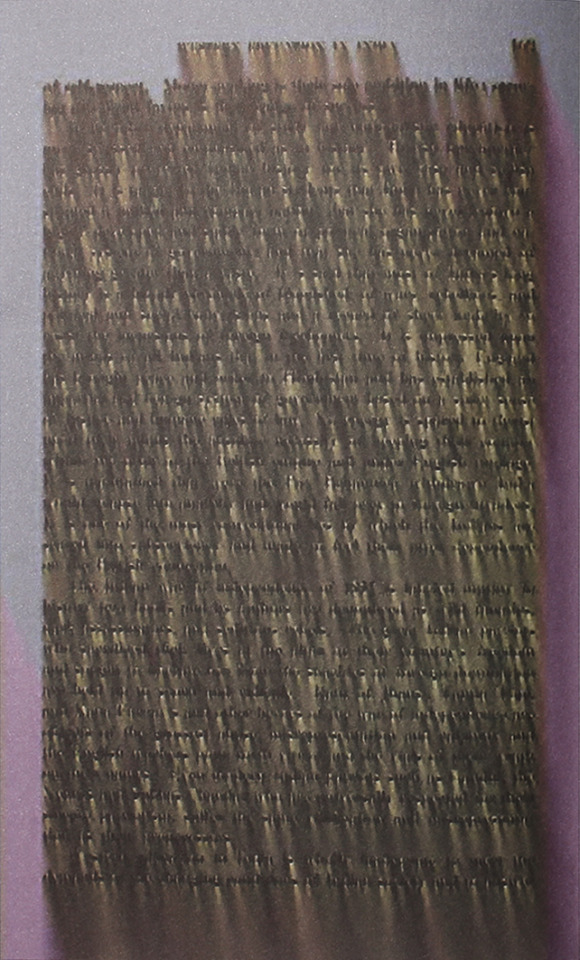
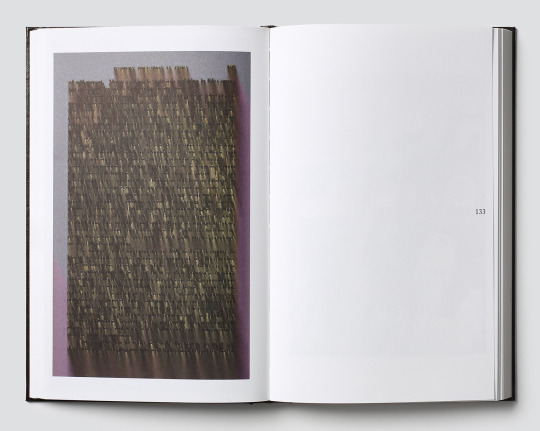
From: The Loss of Information and Sense, Edited by Juri Roemmel and Henry Rausch, Text(s) by Vincenzo Agnetti, William Bronk, Ana Viktoria Dzinic, Efthimis Filippou, Vilém Flusser, Lily Pagano, Stephan Szulzewsky, Jungle Books, St.Gallen, 2022. Designed by Rosario Florio, Larissa Kasper, Samuel Bänziger
#graphic design#art#visual writing#book#juri roemmel#henry rausch#vincenzo agnetti#william bronk#ana viktoria dzinic#efthimis filippou#vilém flusser#lily pagano#stephan szulzewsky#rosario florio#larissa kasper#kasper florio#samuel bänziger#jungle books#2020s
26 notes
·
View notes
Text
“To write a biography at 53 means 'to make biography', in the sense in which Hegel says that to write the history of philosophy means to make history and philosophy… to write a biography is not contemplation, but action.”
Vilém Flusser
2 notes
·
View notes
Text
palavras e memória
Uma pesquisa
Estava começando a estudar o material da matéria de TI do curso Desenvolvimento de Sistemas da ETEC, e logo no começo da apostila era apontada a definição da palavra Qualidade, contando que a palavra surgiu por volta dos anos 80, "como uma necessidade básica na luta pelo mercado cada vez mais competitivo" (ETEC*).
Fui atingida por um pensamento curioso, me dando conta de que uma palavra que é tão comum no meu vocabulário apareceu pela primeira vez recentemente, há menos de 100 anos, me relembrando do quão viva a língua é. Pesquisei então se algum site apontava o ano do primeiro uso de uma palavra, e encontrei a seguinte máquina de viajar no tempo (em inglês), na qual você seleciona um ano e ela te aponta as palavras que foram impressas pela primeira vez no período escolhido:
Time Traveler
Passear por esse site é realmente uma viagem no tempo. As palavras que são apontadas em cada ano mostram com clareza as ideias que estavam em voga naquele período. 2017, por exemplo, traz pela primeira vez a palavra NFT, enquanto 1993 traz o início do uso da palavra DVD - um disco brilhante futurístico que viveu seu auge nos anos 90 e hoje já está caindo em desuso em meio à cultura do streaming.
Pensei que as palavras são como a argila: construídas, modificadas, reconstruídas e passíveis de desaparecer de sua forma original.
No livro A escrita: Há futuro para a escrita? de Vilém Flusser, o autor nos leva por inúmeros questionamentos em relação ao ato de escrever, traçando linhas históricas que passam desde o inscrever em pedras, até os desenhos com pena, e o ato de digitar, investigando o que nos leva a tal ato e o que ele significaria. Escrever busca tornar a palavra mais duradoura do que soltá-la em palavras no ar. Hoje, no entanto, com tantas outras formas de registro que vão desde fotografias até DVDs e NFTs, mantém-se a certeza de que nenhum aparato parece ser duradouro o suficiente para acalentar nosso desejo por encontrar soluções tecnológicas que prometam ser mais capazes de apreender nosso tempo.
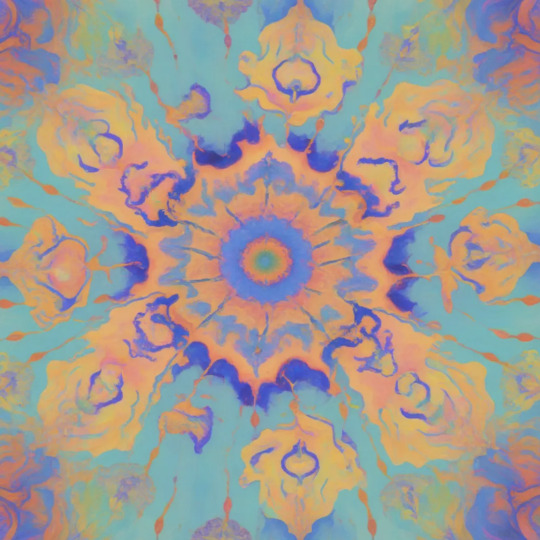
"Nós teremos de reaprender muitas coisas. É complicado, porque reaprender pode ser difícil para o aprendiz, e, sobretudo, porque é difícil esquecer o que se aprendeu em algum momento. Uma vantagem da inteligência artificial é que ela pode esquecer sem qualquer problema. Nós aprendemos com ela a importância de esquecer. E essa é uma enorme reaprendizagem, pois nos exige repensar a função da memória. Nossa tradição vê na memória o lugar da imortalidade: no judaísmo, por exemplo, permanecer na memória é um objetivo de vida, uma bênção. Temos de aprender que, da mesma maneira, é importante ser apagado da memória. Imortalidade e morte significam reaprender, reconhecimento e anonimato querm dizer aprender a revalorar." (Vilém Flusser, Cap. 19 - Transcodificar, em "Escrita: Há futuro para a escrita?")
O conceito de qualidade não cabia na estrutura da sociedade até antes do século XX, e hoje parece que nunca vivemos sem ela, após termos sido bombardeados por Pesquisas de Qualidade, produtos de qualidade, ensino de qualidade, até tempo de qualidade. As palavras nos formam e nós formamos as palavras, e o esquecimento nos permite desmanchar formas ultrapassadas e recriar novos mundos, nos quais as palavras parecem ser cada vez mais coadjuvantes de um experiências ilustradas por imagens, sons e símbolos.
🗯️
*ETEC, Agenda 08 do Terceiro Semestre do Curso de Desenvolvimento de Sistemas EaD
0 notes
Text
Huhtamo Post #1 - Julia Merolle

When reading Huhtamo’s essay on “screenology”, one quote that was interesting to me was “A screen can be tentatively defined as an ‘information surface’. This is deliberately vague. Although screens are two-dimensional surfaces, they often give us an impression of a three-dimensional reality somehow accessible through the screen. Screens are also framed, which metaphorically associates them with paintings or windows – a screen is often conceived as a kind of virtual window opening to a mediated realm. As Vilém Flusser has remarked, screens also have some characteristics of the door – they let us ‘enter’ the realm they depict.” This was an interesting quote to me because I never thought of a screen like that. Although I am studying film and I know what a screen is, I’ve never thought about the fact that we analyze what is on the screen and immerse ourselves into it, with no second thoughts. I like how the quote also says how screens are like a door and let us into the realm that they are showing. This kind of reminds me of Monsters Inc. with all of the different places that Sully and Mike go through in the door scene. I think that screens can also kind of be seen as portals, where the user can just change anything on it because they are in control. I think this is a cool way of looking at things, especially screens which we don’t see as something amazing until we really think about it.
0 notes
Text

Kon Markogiannis is an experimental photographer-mixed media artist with an interest in themes such as memory, mortality, spirituality, the human condition, the exploration of the human psyche, and the evolution of consciousness.
He embraces the indexical qualities of photography and its immediate impact on the viewer, but what he is mainly concerned with are the ways “reality” can be transformed. By manipulating the photographic medium and/or combining it with other media, he is able to develop a personal and simultaneously transpersonal language that negotiates between subjective art and the photographic document. He sees his work as a kind of weapon against the ephemeral or, as Vilém Flusser would say (Towards a Philosophy of Photography), a “hunt for new states of things”.
Kon has been exhibiting his art for many years (mainly in Greece and the UK), and his work has been featured in various books, journals, and magazines. His university studies include a BA in Visual Communication Design, an MA in Photography, and a Doctorate in Fine Art. He currently lives and works in Thessaloniki, Greece.
1 note
·
View note
Text
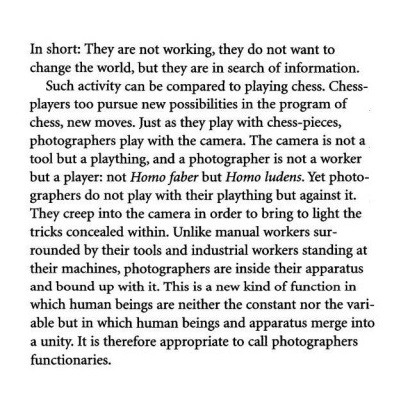
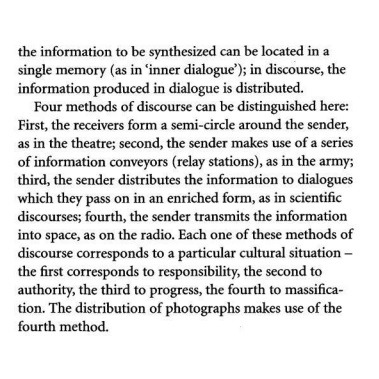
vilém flusser, towards a philosophy of photography
1 note
·
View note
Text
Las imágenes son mediaciones entre el hombre y el mundo. El hombre ek-siste; esto significa que no tiene acceso inmediato al mundo. Las imágenes tienen la finalidad de hacer que el mundo sea accesible e imaginable para el hombre. Pero, aunque así sucede, ellas mismas se interponen entre el hombre y el mundo; pretender ser mapas, y se convierten en pantallas. En vez de presentar el mundo al hombre, lo re-presentan; se colocan en lugar del mundo a tal grado que el hombre vive en función de las imágenes que él mismo ha producido.
Vilém Flusser, 1990, p. 12.
0 notes

